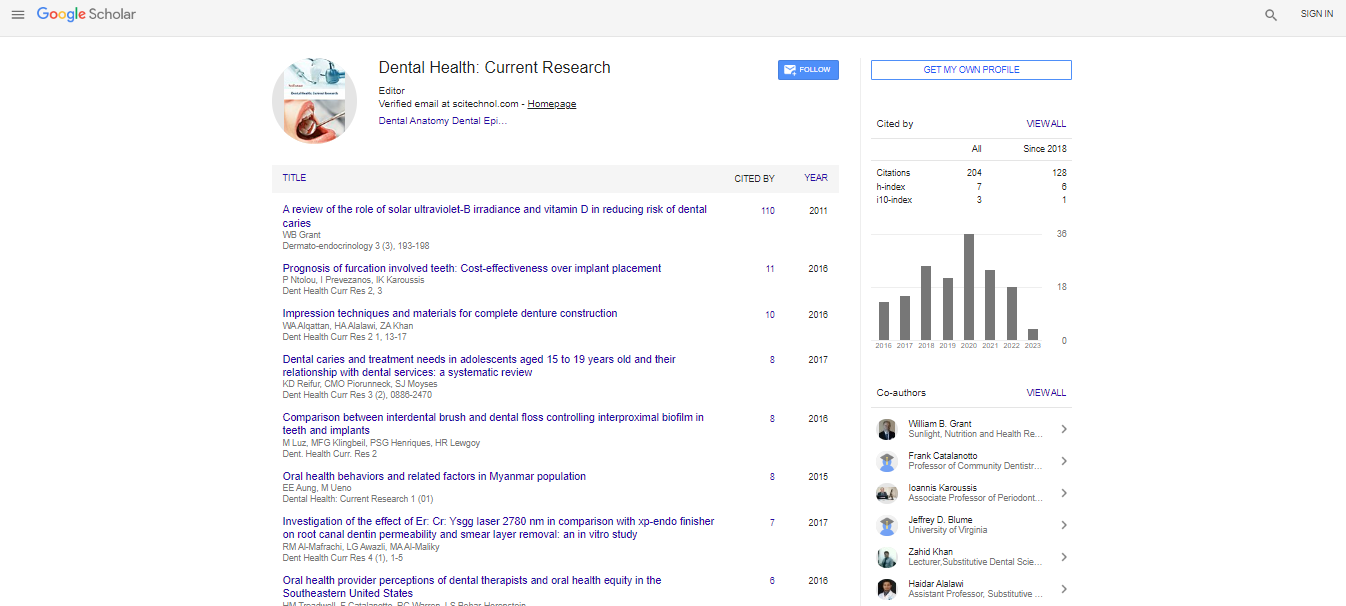An approach to promote the relevance of clinical research through the development of medical education outreach programs
Jailenne I. Quinones-Rodriguez
Universidad Central del Caribe School of Medicine, USA
: Dent Health Curr Res
Abstract
Statement of the problem: Anatomy is taught to medical students during the first year of study. There is a considerable interval between learning the theoretical bases and its performance in the clinical setting. As a result of this, in 2018, the Department of Anatomy and Cell Biology of the School of Medicine at Universidad Central del Caribe (UCC) in Puerto Rico developed an anatomy outreach program focused on enhancing peer tutoring and mentoring as an academic assistance to students using valuable resources – other students. The program employs advanced medical students to tutor first-year medical students. Similar educational strategies have been used in the anatomy laboratory courses in the United States and Europe. The goal of the present study is to evaluate a peer mentoring program conducted over two academic years with medical students at UCC. This program was established within three foundations, including (i) peer mentoring, (ii) peer tutoring, and (iii) promoting the clinical anatomy research interest in medical students. The research component encountered unusual anatomical variations with high clinical significance, including vascular, nervous, and organ anomalies. Methodology and theoretical orientation: Between 2018 – 2020, 166 medical students as first-year medical students and tutees and 16 as tutors participated in executing the anatomy outreach program at UCC. To evaluate the effectiveness of this mentoring program, the academic performance of tutees for each examination given during the course and compared to during other academic years, where students did not receive such mentorship. Findings: The results confirmed that peer mentoring and tutoring provides a positive tendency and fully benefits students. Conclusion and Significance: Peer tutoring and mentoring are viable options that satisfy modern curricula' demands using small groups. This format stimulates learning within courses that have large numbers of students and low faculty-to-student ratios. These findings support the hypothesis that advanced medical students are a worthwhile educational resource.
Biography
Quinones-Rodriguez is an anatomist with more than five years' experience in translational anatomy and neuroanatomical. Besides being a researcher, she is also an education innovator and scholar; she developed and designed an anatomy outreach program promoting the integration of clinical anatomy research, teaching, and mentoring. Her focus is on implementing and delivering highly integrated, organ-systems-based curricula with a clinical emphasis. Quinones earned a B.S. in Biomedical Sciences from the University of Puerto Rico in Ponce, USA.
 Spanish
Spanish  Chinese
Chinese  Russian
Russian  German
German  French
French  Japanese
Japanese  Portuguese
Portuguese  Hindi
Hindi 